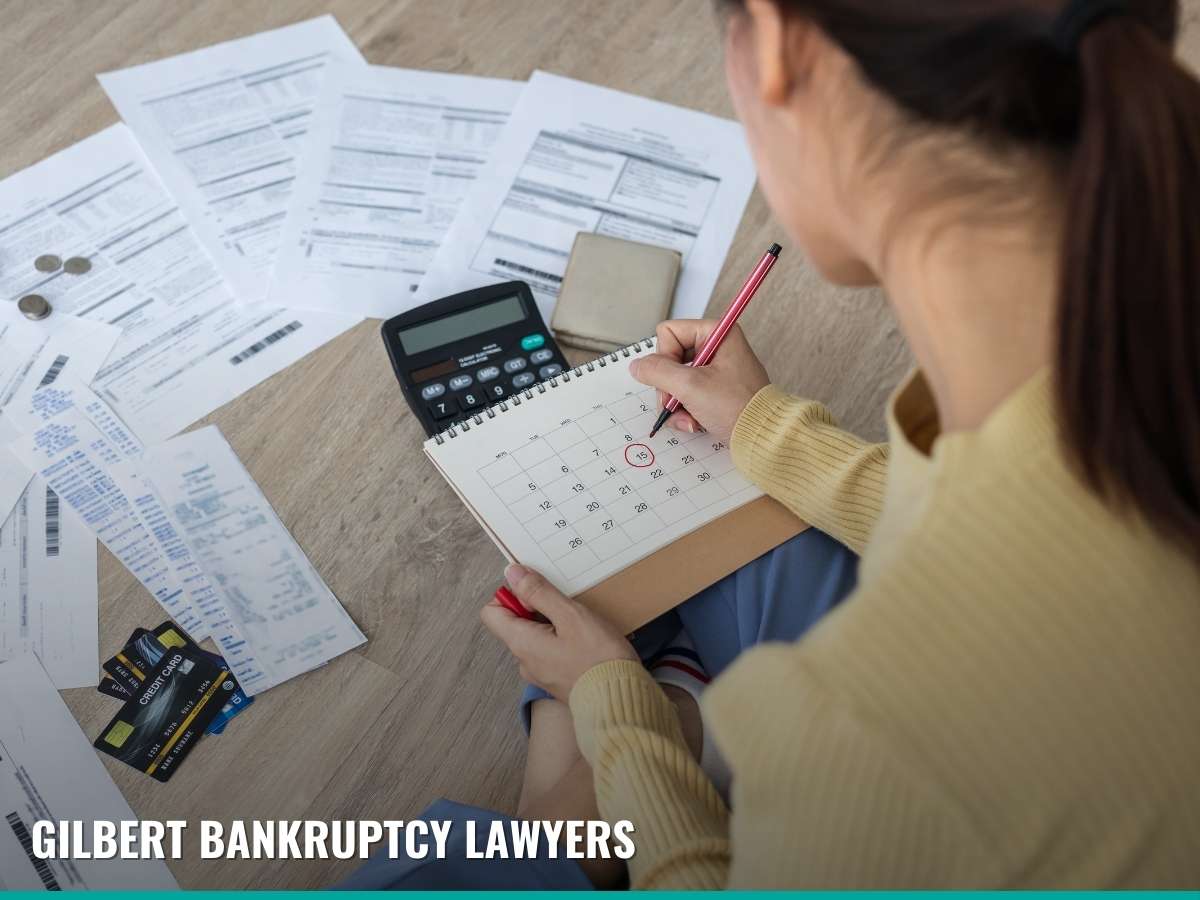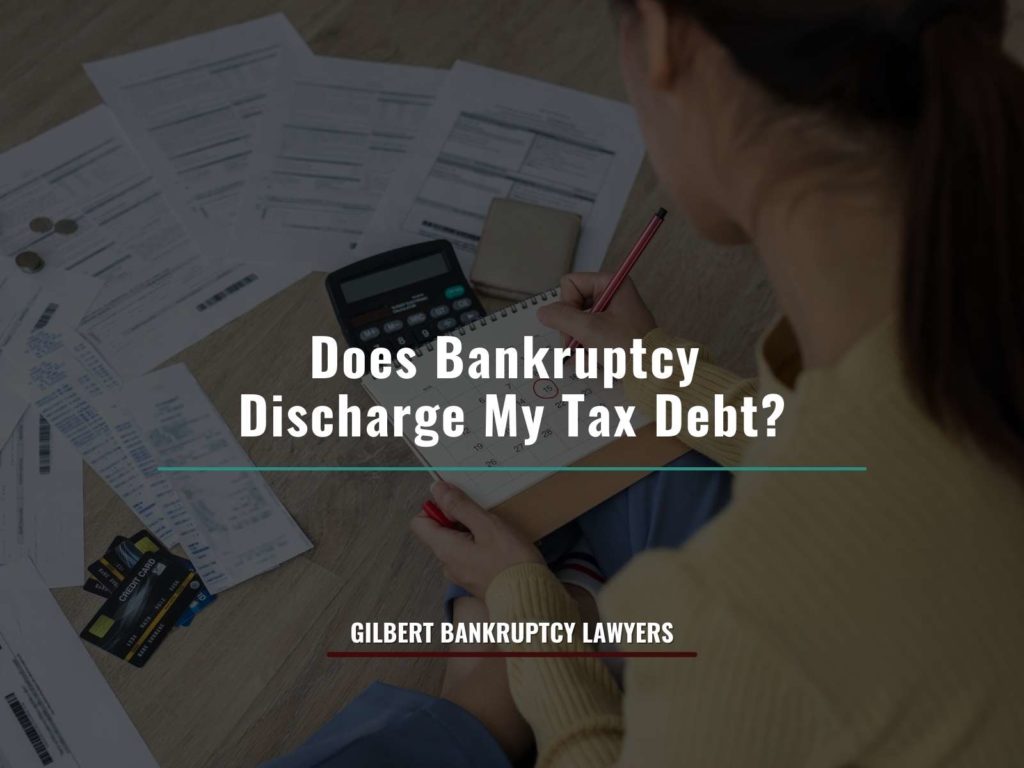Which Cases Of Bankruptcy End IRS Harassment For Good
Do you owe a lot of money to the IRS because of unpaid taxes? Then you may need to contact a Gilbert bankruptcy lawyer to obtain professional guidance. However, you should also read the information below to see which cases of bankruptcy might end IRS harassment for good.
If you’ve seen commercials offering a complete wipe out of tax debts in bankruptcy, be careful. It’s not as easy as it seems. You cannot wipe out most tax debts in bankruptcy, so you will probably continue to owe them at the end of your bankruptcy case. Read on to learn more about it.

How Filing For Bankruptcy Can Help Me With My Tax Debt?
Some tax debts may be eligible for discharge if you file for Chapter 7 or Chapter 13 bankruptcy. Chapter 7 can help you get a full discharge by liquidating assets, while Chapter 13 discharges debts with a repayment plan so you can pay debts little by little.
Regardless of the type of bankruptcy, your tax debts must meet certain criteria if you want to discharge them. This includes:
- Your taxes are only income taxes. You cannot wipe out payroll taxes or fraud penalties through bankruptcy.
- You did not commit willful evasion or fraud. If you willfully attempted to evade taxes, bankruptcy won’t help you. In this case, a Gilbert bankruptcy attorney is the best to receive the best guidance.
- Your tax debt must be at least three years old.
- You filed a tax return. This is crucial for the debt you want to discharge. You should have filed the tax return two years before filing for bankruptcy.
- You have to pass the 240-day rule. It means that the IRS assessed your income tax debt at least 240 days before you filed for bankruptcy.
What About Federal Tax Lien?
While bankruptcy can help you discharge some tax-related debts, others cannot be discharged the same way. Non-dischargeable tax debts include tax liens, property taxes, and employment taxes.
Bankruptcy cannot wipe out your prior recorded tax liens. Chapter 7 bankruptcy can discharge your obligation to pay the qualifying tax and help you keep the IRS away from your bank account. However, if the IRS recorded a tax lien on your property before your bankruptcy filing, the lien will stay on that property. In short, you will have to pay off the tax lien before transferring the property’s title to a new person.
When Should I File For Bankruptcy: Before or After Taxes?
This is a common question when filing for bankruptcy. It’s usually better to consult with a Gilbert bankruptcy attorney to get better advice, but we can help you out with the following recommendations.
If You File For Chapter 7 Bankruptcy:
The trustee will oversee your case and will ask you to show your most recent filed tax return. It doesn’t have to be the tax return for the last tax year, but if you don’t follow this rule, the trustee will ask for a specific explanation (through a written document).
The trustee will then compare the income you mentioned to the amount listed in the bankruptcy paperwork. Depending on that information, you may have to turn the refund over to the trustee. This way, the trustee can distribute the refund to your creditors.
If You File For Chapter 13 Bankruptcy:
You have to be up to date on your tax returns before filing for Chapter 13 bankruptcy. To make things easier, you can offer copies of the tax returns from the previous four tax years to the trustee. The only rule, in this case, is to offer these copies before the 341 meeting of creditors.
If you do not qualify for a return, your trustee may ask for an affidavit or letter explaining why.
Getting More Information With a Gilbert Bankruptcy Lawyer
If you can prove you meet all the specific criteria mentioned before, bankruptcy may be a great alternative for you. But, if you still have doubts about this topic, and you don’t know if filing for bankruptcy is your best debt-relief solution, feel free to request a free case consultation with Gilbert Bankruptcy Lawyer.
Our staff will help you schedule your consultation at your convenience. Contact us by phone or email to get started!
Gilbert Bankruptcy Lawyers
Office: 480-448-9800
Email: info@myazlawyers.com
Website: https://gilbertbankruptcylawyers.com
